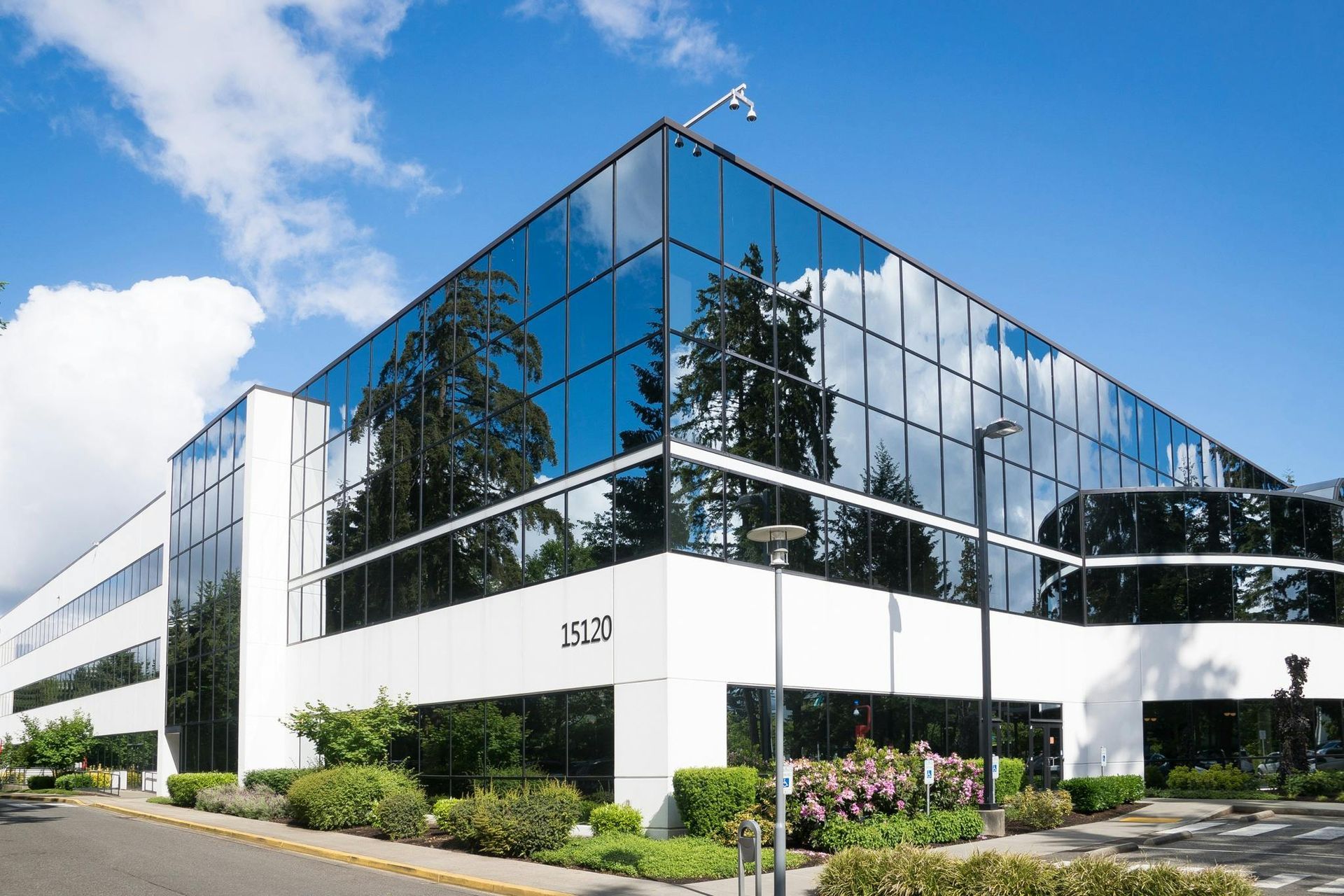Tips for Buyers on Location in Arkansas: A Guide for Navigating the Natural State
Arkansas, the "Natural State," offers a unique blend of Southern charm, natural beauty, and a growing economy. Whether you're considering relocating your business or searching for the perfect spot to invest in commercial real estate, understanding the nuances of location is crucial.

Understanding Arkansas's Diverse Geography
Arkansas boasts a diverse landscape, ranging from the rolling hills of the Ozarks to the flat lands of the Mississippi Delta. This variety impacts factors like:
- Climate: Arkansas experiences a humid subtropical climate with hot summers and mild winters. Consider how your business operations will be affected by factors like extreme heat, humidity, and the potential for severe weather (tornadoes, thunderstorms).
- Natural Resources: Arkansas is rich in natural resources, including timber, natural gas, and agriculture. This can influence the availability of raw materials, energy costs, and the potential for sustainable business practices.
- Accessibility: Arkansas has a well-developed interstate highway system, but transportation infrastructure varies across the state. Consider proximity to major highways, airports, and rail lines for efficient logistics and accessibility for your employees and customers.
Key Considerations for Business Location
Successful business location hinges upon a careful assessment of several critical factors. A robust and skilled labor pool is paramount. Businesses must evaluate the availability of qualified workers with the necessary skills and experience for their specific industry. Factors such as local unemployment rates, the presence of educational institutions that offer relevant training programs, and the overall demographic composition of the workforce should be carefully considered. Furthermore, the cost of labor, including wages and benefits, must be analyzed and compared to other potential locations to ensure long-term financial viability.
Equally important is a thorough analysis of market demand. Businesses must identify their target market and conduct in-depth research on their demographics, preferences, purchasing power, and consumer behavior. Choosing a location that aligns with the needs and preferences of the target market is crucial for attracting customers and achieving business success. Additionally, a comprehensive assessment of the competitive landscape within the chosen industry is essential. This analysis should evaluate the number and strength of existing competitors, their market share, and their competitive advantages. Understanding the competitive landscape allows businesses to identify opportunities for differentiation and develop strategies to gain a competitive edge.
The quality of life within a potential location significantly impacts employee satisfaction, retention, and overall business success. Factors such as the availability and quality of schools, healthcare facilities, restaurants, and recreational opportunities are crucial for attracting and retaining a talented workforce. Additionally, the overall cost of living, including housing costs, utilities, and transportation expenses, significantly impacts the attractiveness of a location for both employees and businesses.
3. Regional Focus: Exploring Key Areas in Arkansas
- Northwest Arkansas: anchored by cities like Bentonville (home of Walmart) and Fayetteville, has emerged as a significant economic hub. This region boasts a thriving economy, a highly educated workforce, and a vibrant arts and cultural scene. The presence of major corporations and a strong entrepreneurial ecosystem has fueled significant economic growth in recent years. However, this rapid growth has also lead to higher cost of living compared to other parts of the state.
- Central Arkansas: with Little Rock servicing as the state capital, offers a diverse economy with a strong presence in sectors such as healthcare, government, and education. Little Rock is a growing tech hub, attracting a young and talented workforce. The region offers a more affordable cost of living compared to Northwest Arkansas and provides convenient access to state government resources. However, like any major city, Little Rock may experience urban challenges such as traffic congestion and potential for higher crime rates in certain areas.
- Delta Region: known for its rich agricultural land and its role in the state's agricultural industry, offers a more rural environment with a lower cost of living. This region presents opportunities for agribusiness development, including farming, food processing, and agricultural technology. The more rural nature of the Delta may present challenges such as limited access to specialized services and a smaller workforce pool compared to more urban areas.
- Ouachita Mountains: offering stunning natural beauty, attracting tourists and outdoor enthusiasts. This region presents opportunities for businesses focused on tourism, reaction, and outdoor activities, such as lodging, restaurants, outdoor gear rentals, and adventure tourism. This more remote location within this region may present challenges such as limited access to major transportation hubs and a smaller populations base, which can impact the availability of a skilled workfoce and the overall size of the local market.
4. Key Resources for Location Analysis
- Arkansas Economic Development Commission (AEDC): The AEDC provides valuable resources for businesses looking to locate or expand in Arkansas, including data on demographics, industry clusters, and available incentives.
- Local Chambers of Commerce: Chambers of Commerce in specific cities and regions can provide valuable insights into local market conditions, available resources, and community contacts.
- Commercial Real Estate Brokers: Experienced commercial real estate brokers like myself can provide expert guidance on available properties, market trends, and negotiation strategies.
5. Evaluating Incentives and Support Programs
Arkansas offers a variety of incentives and support programs designed to attract and support businesses. These incentives can significantly impact the financial viability and overall success of a business venture.
- Tax Credits: The state offers various tax credits for businesses that invest in research and development, create new jobs, and make capital investments.
- Grants: may be available for specific industries, such as manufacturing, technology, and tourism, to support business expansion, job creation, and infrastructure development.
- Workforce Training Programs: The state offer a range of workforce training programs to help businesses develop the skills of their employees and improve their overall productivity. These programs can include on-the-job training, customized training programs, and access to educational institutions.
- Community Development Organizations: Many communities have dedicated organizations that support economic development. These organizations can provide valuable assistance with site selection, financing, and business planning. They can also connect businesses with local resources and facilitate networking opportunities within the community.
Evaluating these incentives and support programs is crucial for maximizing the potential return on investment for your business. By carefully assessing the available programs and determining their eligibility requirements, businesses can leverage these incentives to reduce costs, enhance competitiveness, and accelerate their growth.
6. Conducting Thorough Due Diligence
- Site Visits: Conduct thorough site visits to assess the suitability of potential locations. Consider factors such as access, visibility, traffic flow, and surrounding land use.
- Environmental Assessments: Conduct environmental assessments to identify any potential environmental concerns that could impact your business operations.
- Market Analysis: Conduct thorough market research to validate your assumptions about market demand, competition, and potential for success.
By conducting comprehensive due diligence, businesses can make informed decisions, mitigate potential risks, and increase the likelihood of long-term success.
7. Building Relationships with Local Stakeholders
Building strong relationships with local stakeholders is crucial for successful business operations. These relationships can provide valuable insights, facilitate collaboration, and enhance the company's reputation within the community.
- Community Engagement: Building strong relationships with local community leaders, government officials, and other stakeholders is essential for successful business operations.
- Community Involvement: Consider ways to become involved in the community through charitable giving, volunteerism, or other forms of community engagement.
By actively engaging with the community and building strong relationships with local stakeholders, businesses can create a positive impact, enhance their reputation, and foster a supportive environment for their operations.
8. Long-Term Vision and Sustainability
Successful business location requires a long-term strategic vision that considers the evolving needs of the business and the changing dynamics of the local market.
- Strategic Planning: Developing a comprehensive strategic plan is essential for long-term success. This plan should outline the business's long-term goals, objectives, and strategies for achieving those goals. It should also consider potential future challenges and opportunities, and outline strategies for adapting to changing market conditions.
- Sustainability: Integrate sustainability considerations into your business operations is increasingly important for long-term success and community responsibility. This includes adopting environmentally friendly practices, such as energy efficiency, waste reduction, and water conservation.
- transportation options.
By embracing a long-term perspective and incorporating sustainability considerations into their operations, businesses can create a positive and lasting impact on the community while ensuring their own long-term success.
Successfully locating your business in Arkansas requires a multi-faceted approach. Key considerations include thorough research, leveraging valuable resources like the AEDC and local Chambers of Commerce, and conducting thorough due diligence. Building strong relationships with local stakeholders and incorporating sustainability into your operations are crucial for long-term success. Arkansas offers a unique blend of natural beauty and a growing economy, providing opportunities for businesses that conduct thorough research and leverage the available resources.












